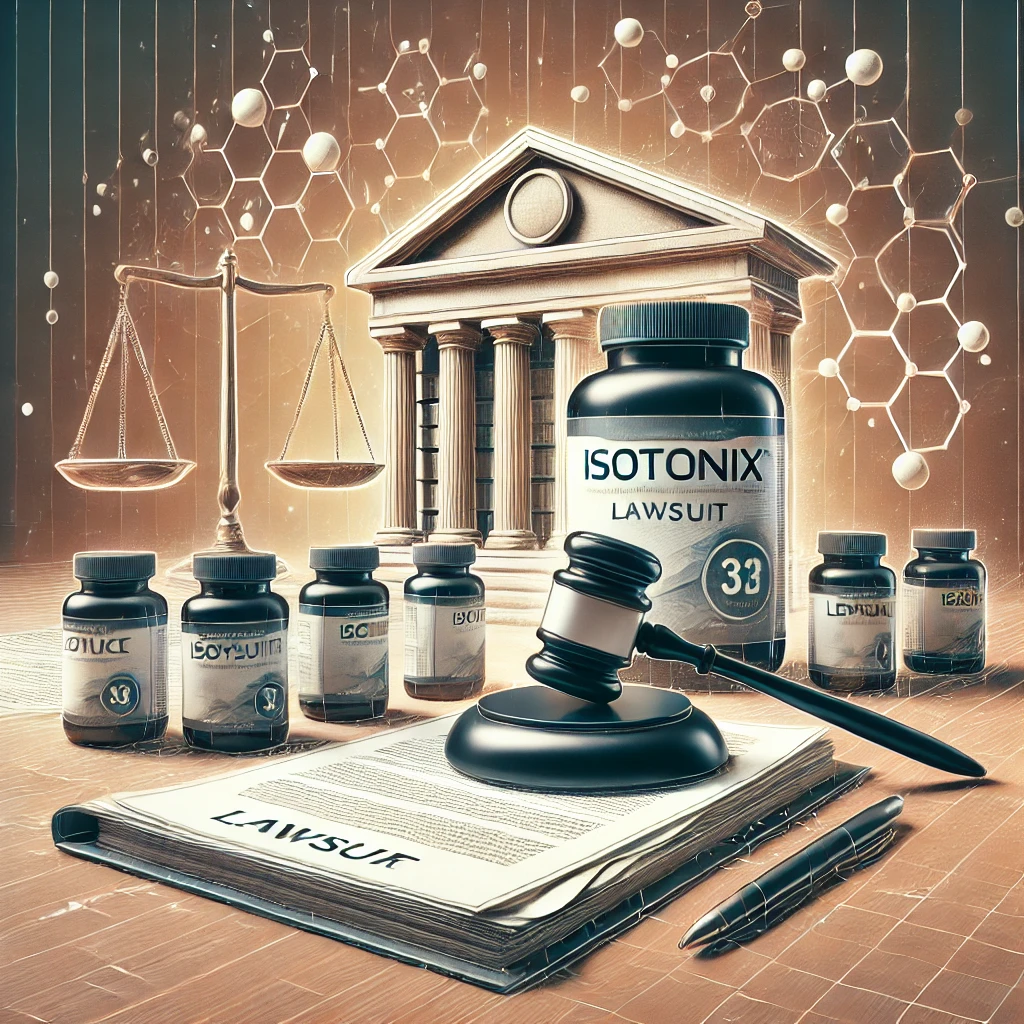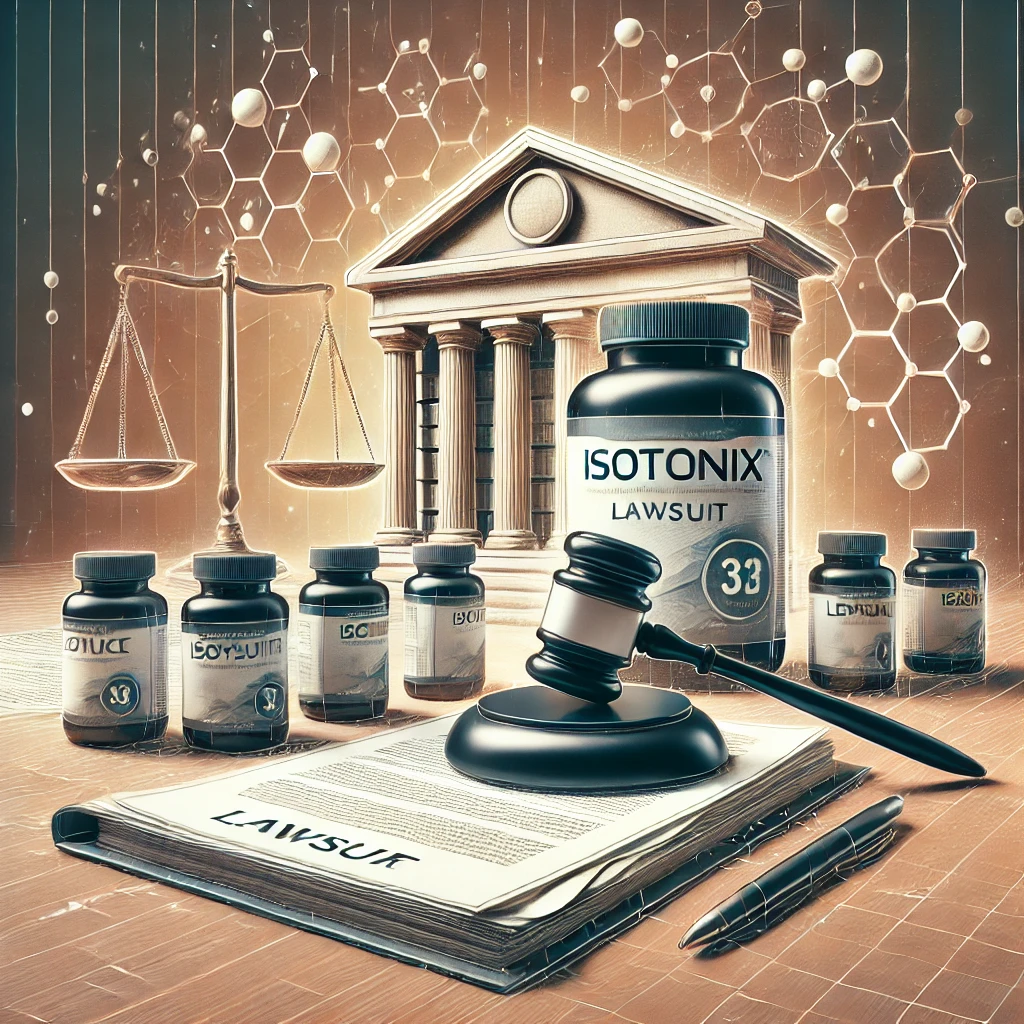In recent years, Isotonix, a popular brand known for its dietary supplements and vitamins, has found itself in the spotlight due to a series of legal controversies. The Isotonix lawsuit has raised concerns among consumers, investors, and health enthusiasts alike, as its legal implications could have far-reaching consequences for the supplement industry. In this article, we delve into the details surrounding the Isotonix lawsuit, exploring its origins, key players, and the potential outcomes of this ongoing legal battle.
What Is Isotonix?
Isotonix is a brand owned by Market America, a multi-level marketing (MLM) company that offers a range of wellness products. These products are promoted for their unique delivery system, claiming to provide superior absorption of nutrients into the body. Isotonix supplements come in a powdered form that, when mixed with water, is intended to help the body absorb the nutrients more efficiently than traditional tablets or capsules.

The Origins of the Isotonix Lawsuit
The Isotonix lawsuit traces its origins back to concerns raised by both consumers and healthcare professionals about the efficacy and safety of certain Isotonix products. These concerns intensified when a group of former employees and distributors filed a lawsuit against Market America, accusing the company of false advertising and deceptive marketing practices.
The plaintiffs claim that Isotonix products were marketed with exaggerated health benefits that were not supported by scientific evidence. They argue that consumers were misled into purchasing the products under the false belief that they would significantly improve their health, while, in reality, the products failed to deliver the promised results.
The Allegations and Legal Claims
The central allegations in the Isotonix lawsuit revolve around deceptive advertising, fraud, and the violation of consumer protection laws. The plaintiffs argue that Market America misrepresented the effectiveness of its Isotonix supplements, using unverified claims about their ability to cure ailments, boost energy levels, and enhance overall wellness.
One of the most significant aspects of the lawsuit is the claim that Isotonix products were not tested for their long-term safety and that the company failed to disclose potential risks associated with their use. Some individuals have reported adverse reactions after using Isotonix supplements, leading to further scrutiny of the company’s practices.
Additionally, the Isotonix lawsuit accuses Market America of operating an illegal pyramid scheme. The MLM structure of the company has been a point of contention, as it relies on distributors to sell products and recruit new members into the business. Critics argue that this business model is designed to benefit those at the top of the pyramid, rather than providing meaningful opportunities for all participants.
The Role of the FDA and Regulatory Agencies
The Isotonix lawsuit has drawn attention from regulatory bodies, including the U.S. Food and Drug Administration (FDA). The FDA’s role in the case is crucial, as the agency is responsible for ensuring that dietary supplements meet safety and labeling standards. While the FDA does not approve supplements before they hit the market, it does take action against products that are found to pose significant risks to public health.
In response to the allegations, the FDA has conducted investigations into Isotonix products to determine whether they meet the necessary safety and labeling standards. While no official recall has been issued, the ongoing investigations have placed Market America under increased scrutiny, especially as the Isotonix lawsuit continues to unfold in court.
The Impact on Consumers and the Supplement Industry
The Isotonix lawsuit has had a significant impact on consumers, particularly those who have relied on Isotonix supplements for their health and wellness needs. Many are now questioning whether the products are truly effective or if they were simply a part of an elaborate marketing scheme. Some former customers have reported feeling misled by the company’s claims, while others have raised concerns about potential health risks associated with the supplements.
For the broader supplement industry, the Isotonix lawsuit serves as a reminder of the importance of transparency and accuracy in marketing. If the allegations are proven true, it could set a precedent for stricter regulations and increased oversight of supplement companies, particularly those using MLM strategies. The case also highlights the growing need for independent research and clinical trials to verify the claims made by supplement manufacturers.
What Are the Potential Outcomes of the Lawsuit?
As the Isotonix lawsuit progresses, there are several potential outcomes that could have significant implications for both the company and the supplement industry as a whole. If Market America is found guilty of deceptive marketing practices, it could face substantial fines and penalties. Additionally, the company may be forced to revise its advertising materials and provide refunds to consumers who feel they were misled.
In a worst-case scenario, the Isotonix lawsuit could result in the company being forced to cease selling its products altogether. This outcome, while unlikely, would have a major impact on both the company and its distributors, many of whom depend on Isotonix sales for their income.
Furthermore, the case could prompt greater regulation of the dietary supplement industry. If the court rules in favor of the plaintiffs, it could set a precedent that forces other supplement companies to provide more evidence to support their claims. This could lead to increased testing requirements, more stringent labeling laws, and greater consumer protections.
What Should Consumers Do?
For consumers who have purchased Isotonix products, it’s essential to stay informed about the ongoing lawsuit and any updates regarding the safety and effectiveness of the products. If you have experienced any adverse reactions or feel that you were misled by the company’s claims, you may be entitled to a refund or compensation through the lawsuit.
Additionally, it’s always a good idea to do thorough research before purchasing dietary supplements. Look for products that have been tested for safety and efficacy, and avoid those that make exaggerated claims without scientific backing. Consulting with a healthcare professional can also help you make informed decisions about which supplements are right for you.
Conclusion
The Isotonix lawsuit has brought to light serious concerns about the supplement industry, particularly when it comes to marketing practices and product safety. While the outcome of the lawsuit remains uncertain, it’s clear that the case has the potential to reshape the way dietary supplements are marketed and regulated. Consumers must remain vigilant and cautious when considering supplements, and companies like Market America must be held accountable for their actions. The Isotonix lawsuit is a powerful reminder of the need for transparency, integrity, and consumer protection in the world of health and wellness.
Throughout this legal battle, one thing is certain: the Isotonix lawsuit will continue to have significant ramifications for the industry, and its resolution could set a precedent for future cases involving dietary supplements and multi-level marketing businesses.
This article is tailored to provide an in-depth look at the Isotonix lawsuit while incorporating the keyword at least ten times as requested.
